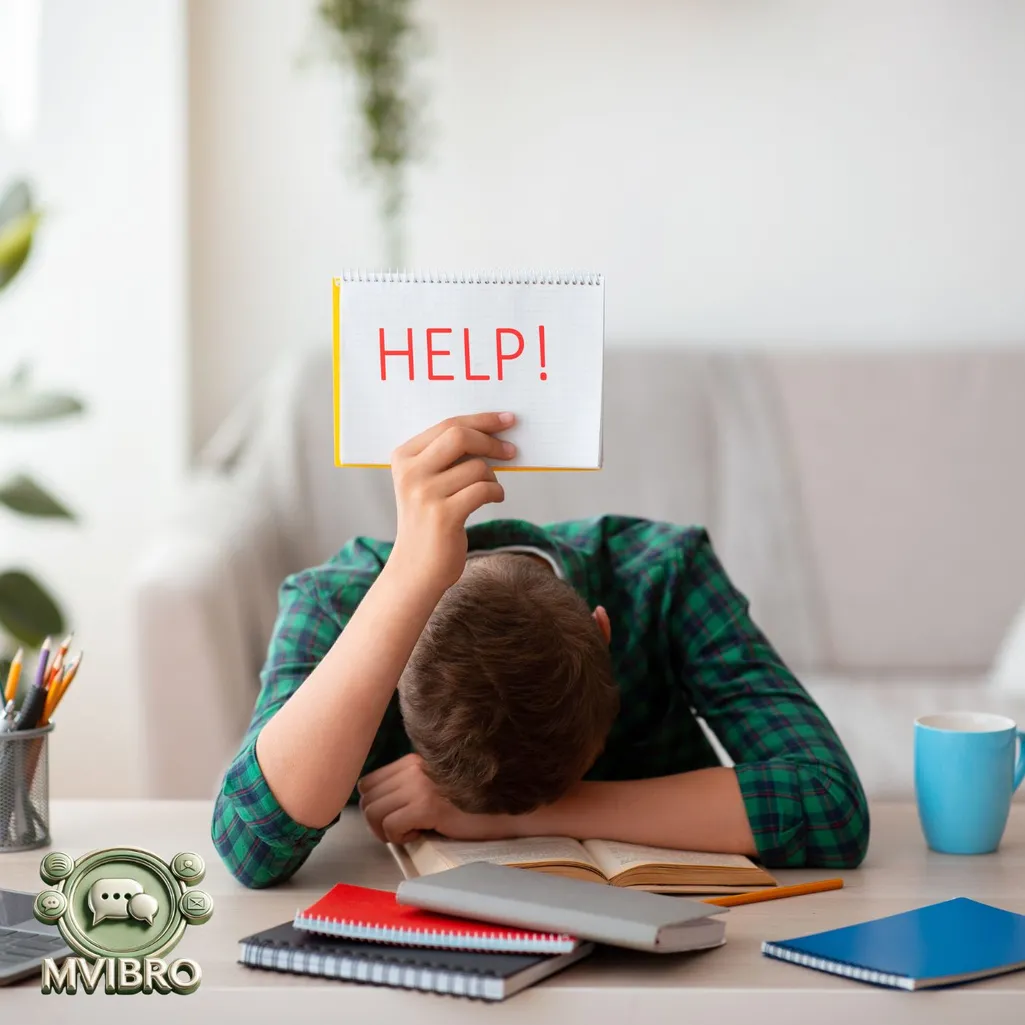“Feeling tired is universal, but how we respond can make all the difference.”
Everyone feels tired sometimes, whether it’s from physical work, mental strain, or emotional stress. When someone says, “I’m tired,” they might not just mean they need rest—they could be asking for understanding, support, or help. Your response can either uplift their mood or make them feel unseen.
Don’t overlook the power of a caring reply. Take it as a chance to connect, whether by offering a listening ear, practical help, or light-hearted relief. You don’t have to solve all their problems; just showing that you care makes a big difference.
In this blog post, we’ll explore diverse and meaningful responses for when someone says they’re tired. From encouraging self-care to offering humor, you’ll find specific examples to address their needs in any situation. Let’s dive in and learn how to make your words count.
list of Respond to “I’m Tired”
- Empathetic Responses
- Supportive/Encouraging Responses
- Offering Help
- Suggesting Rest or Relaxation
- Humorous/Light-Hearted Responses
- Sympathetic but Action-Oriented
- Curious/Understanding Responses
- Validating Their Feelings
- Motivational Responses
- Relating to Their Situation
- Offering a Distraction
- Gentle Humor (When Appropriate)
- Encouraging Self-Care
- Reassuring Responses
- Problem-Solving Approach
- Mindfulness or Relaxation Suggestions
- Acknowledging Mental or Emotional Fatigue
- Offering a Change of Scenery
- Acknowledging Mental or Emotional Fatigue
- Suggesting Time Off or a Break
Empathetic Responses
- “I hear you. That sounds really hard.”
- “It’s okay to feel like this; we all get tired.”
- “That must be exhausting. Want to talk about it?”
- “I can’t imagine how draining that must be.”
- “It’s totally understandable to feel this way.”
- “You’ve been handling so much lately—it’s no wonder.”
- “I’m sorry you’re feeling this way. I’m here for you.”
- “You’re doing great, even if it doesn’t feel like it right now.”
- “Let me know how I can make things easier for you.”
- “Take your time. You deserve to rest.”
- “That sounds really overwhelming.”
- “You’ve been through a lot—no wonder you’re feeling tired.”
- “You can lean on me if you need to.”
- “I wish I could take some of that burden off you.”
- “Just know that I’m thinking of you.”
Supportive/Encouraging Responses
- “You’re stronger than you feel right now.”
- “You’ve got this, even if it feels hard today.”
- “It’s okay to slow down; you’re still doing amazing.”
- “Every step forward counts, no matter how small.”
- “Don’t forget how far you’ve already come.”
- “You’re allowed to rest and still be incredible.”
- “Take it one moment at a time. You’ll get there.”
- “Remember, even strong people need a break.”
- “You’ve overcome tough days before—you can handle this too.”
- “It’s okay to pause and catch your breath.”
- “You’re doing the best you can, and that’s enough.”
- “Keep going—you’re closer than you think.”
- “Don’t let today’s tiredness steal tomorrow’s hope.”
- “Rest when you need to; your goals will wait for you.”
- “You’re capable of amazing things, even if you don’t feel it now.”
Offering Help
- “What can I do to make things easier for you?”
- “Let me handle that for you.”
- “Do you need someone to talk to right now?”
- “I can take care of that task if you need.”
- “How about I bring you something to eat or drink?”
- “Do you need help sorting things out?”
- “Let me know if you’d like me to run an errand for you.”

- “I can listen if you want to vent.”
- “Would it help if I made some calls or handled emails for you?”
- “Why don’t you rest while I take care of this?”
- “I’d love to help—what do you need most?”
- “Want me to organize something for you?”
- “I can lend a hand with that if you want.”
- “Don’t worry; I’ll figure this out for you.”
- “I’ve got your back. Just let me know what you need.”
Suggesting Rest or Relaxation
- “Why not take a quick nap?”
- “You might feel better after a short break.”
- “How about a warm bath to unwind?”
- “Try some deep breathing—sometimes that helps.”
- “Close your eyes for a bit; it can work wonders.”
- “Why don’t you call it a day and rest?”
- “Listen to some calming music—it might help.”
- “Take a moment to stretch; it might ease your body.”
- “Try stepping outside for a breath of fresh air.”
- “A quiet moment with tea or coffee might recharge you.”
- “Why not switch off your devices for a bit and rest?”
- “Lying down for a few minutes can make a difference.”
- “Sometimes, doing absolutely nothing is the best cure.”
- “A good book or soothing movie could help you relax.”
- “Let yourself recharge—you’ve earned it.”
Humorous/Light-Hearted Responses
- “Sounds like you need a personal assistant—or a vacation!”
- “Tired? You’ve been working harder than coffee on a Monday!”
- “Maybe it’s time to binge-watch some guilt-free TV.”
- “Sounds like you need a nap longer than a toddler’s tantrum.”
- “Ever tried sleeping? Highly recommended.”
- “Tired? Let me grab you some motivation—or just more coffee.”
- “You deserve a break… and maybe an all-you-can-eat buffet.”
- “Maybe the world can wait while you recharge, superhero.”
- “Sounds like the ‘do not disturb’ sign is calling your name.”
- “If yawning were an Olympic sport, you’d take gold today!”
- “Time to do your best impression of a couch potato.”
- “Looks like you’ve earned the right to ‘Netflix and not move.’”
- “Why don’t you power down and reboot yourself like a computer?”
- “Maybe your bed misses you as much as you miss it.”
- “You’ve worked hard enough to take a break—guilt-free!”
Sympathetic but Action-Oriented
- “That sounds exhausting—what’s the first thing we can do to help?”
- “I’m sorry you’re feeling like this. Let’s figure out one small step forward.”
- “You’re clearly dealing with a lot—can we tackle something together?”
- “Let’s focus on what’s most urgent and leave the rest for later.”
- “That sounds rough. Want me to help you prioritize your tasks?”

- “I hear you. Let’s brainstorm a way to make things easier.”
- “Tired? Let’s plan how you can take some time off soon.”
- “You’re doing a lot. Can we delegate or postpone anything?”
- “This sounds overwhelming. Want to talk about one specific thing?”
- “What’s one thing you can skip or simplify today?”
- “Let’s solve this together so you can rest sooner.”
- “You need support—let’s figure out the best way to get it.”
- “It’s okay to pause and regroup. How can I help you reset?”
- “What’s one thing I can do to make today easier for you?”
- “Let’s take it one task at a time—you’ve got this.”
Curious/Understanding Responses
- “What’s been the most draining thing for you lately?”
- “Do you think it’s more physical tiredness or mental fatigue?”
- “What’s making you feel like this right now?”
- “Have you had a chance to take a break today?”
- “Is there something specific weighing you down?”
- “How long have you been feeling this way?”
- “What do you think would help you feel a bit better?”
- “Do you feel like you’re burning out, or is it just temporary?”
- “What’s been the hardest part of your day so far?”
- “Have you been able to get enough sleep lately?”
- “Is there anything on your mind causing this fatigue?”
- “Do you feel like talking about what’s going on?”
- “What do you think is the biggest factor in your tiredness?”
- “Is it work, personal stuff, or a mix of everything?”
- “What’s one thing that would make your day easier?”
Validating Their Feelings
- “You’ve got every right to feel tired after all that.”
- “It’s okay to feel this way—don’t be too hard on yourself.”
- “Feeling tired doesn’t mean you’re not strong.”
- “Your feelings are valid, and it’s okay to express them.”
- “I completely understand why you’d feel this way.”
- “You’ve been through a lot; no wonder you’re feeling drained.”
- “It’s normal to feel like this when you’re under so much pressure.”
- “You’re allowed to feel tired—it happens to the best of us.”
- “You don’t have to justify your feelings to anyone.”
- “You’ve done so much—it’s okay to need a break.”
- “Your emotions are valid, and I respect how you’re feeling.”
- “It’s understandable to feel this way after everything you’ve done.”
- “You’re not alone in feeling tired. We all get there sometimes.”
- “It’s okay to acknowledge that you’re human and need rest.”
- “I appreciate you sharing how you feel—it’s important.”
Motivational Responses
- “You’ve got this, even if it feels tough right now.”
- “Remember, every challenge is temporary. You’re stronger than this moment.”
- “Even on your hardest days, you keep moving forward—don’t stop now.”
- “Tiredness is just a signal that you’re working toward something meaningful.”
- “You’re capable of amazing things—take a breath and keep going.”
- “This feeling won’t last forever. Rest, recharge, and rise again.”
- “You’ve overcome so much already; this is just another hurdle.”
- “It’s okay to pause, but don’t forget how far you’ve come.”
- “You’re doing more than you realize—keep believing in yourself.”
- “Tired moments often lead to the most rewarding outcomes.”
- “Even when you’re tired, your effort matters and makes a difference.”
- “Take things step by step—you’ll get there, I promise.”
- “Rest when you need to, but don’t give up on what you’re working for.”
- “You’re resilient and resourceful—lean into that strength.”
- “Sometimes rest is the best way to power up for your next success.”

Relating to Their Situation
- “I’ve felt the same way before—what helped me was stepping back for a bit.”
- “I’ve been there too, and I know it’s not easy.”
- “I completely get how draining it can be to handle so much at once.”
- “I’ve experienced something similar—what worked for me was simplifying things.”
- “I know how it feels to be running on empty—it’s tough.”
- “I’ve had those days too, and it helps to just focus on one thing at a time.”
- “I remember a time when I felt like this—what helped me was asking for support.”
- “I know that kind of tiredness—it’s like your body and mind are on strike.”
- “I’ve felt exactly what you’re describing. You’re not alone in this.”
- “I know what it’s like to feel completely drained. Let’s figure this out together.”
- “I’ve been there, and sometimes just talking about it can help.”
- “I know that exhaustion—it’s okay to take it easy when you need to.”
- “I’ve had days like that too—it’s a sign you’re working hard and need to recharge.”

- “I get it—some days it feels like the weight of the world is on your shoulders.”
- “I’ve been through something similar—let me know how I can support you.”
Offering a Distraction
- “Let’s grab a coffee and chat about something fun.”
- “How about we take a walk and clear our heads?”
- “Want to watch a funny video or two to lighten the mood?”
- “Let’s do something relaxing like a puzzle or a quick game.”
- “How about we grab a snack and talk about your favorite show?”
- “Let’s plan something fun for the weekend to look forward to.”
- “Want to try a quick meditation or breathing exercise with me?”
- “How about we switch gears and talk about something that excites you?”
- “Let’s listen to some upbeat music and take a quick break.”
- “Want to step outside for some fresh air together?”
- “Let’s shift focus for a moment—tell me about your latest hobby.”
- “How about we brainstorm something creative to get your mind off things?”
- “Let’s find a quick recipe to try together and make something fun.”
- “Want to hear a funny story or joke to take your mind off things?”
- “Let’s focus on something lighthearted for a bit—what’s been making you smile lately?”
Gentle Humor (When Appropriate)
- “Looks like the couch is calling your name—better answer it soon!”
- “Tired? Maybe the coffee forgot to work today.”
- “You’ve been working so hard even your to-do list needs a break.”
- “If yawns were currency, you’d be rich right now.”
- “Sounds like you and your bed need a serious reunion.”
- “You’ve earned the right to say, ‘I’m too tired for this.’”
- “Feeling tired? Let’s declare today an official pajama day!”
- “Time to trade your superhero cape for a comfy blanket.”
- “You’re so tired; even your shadow wants to lie down.”
- “If tiredness were a sport, you’d win gold today.”
- “You look like you could use a nap—a long, glorious nap.”
- “You’ve worked so hard; your brain probably needs a vacation.”
- “Time to file a ‘do not disturb’ notice with the universe.”
- “Feeling like this is your cue to turn into a professional napper.”
- “Maybe all you need is a snack, a nap, and a comedy special.”
Encouraging Self-Care
- “Make yourself a priority today—you deserve it.”
- “How about a warm bath and your favorite book tonight?”
- “Don’t forget to hydrate and grab a nourishing meal.”
- “Take a moment to breathe deeply—you’ve got this.”
- “Give yourself permission to rest without guilt.”
- “Sometimes self-care is the best way to recharge.”
- “Listen to your body—it’s asking for a bit of kindness.”
- “Make time for something that truly relaxes you today.”
- “Even a short break can do wonders for your energy.”
- “Treat yourself like you’d treat your best friend.”

- “Your well-being matters, so take care of yourself.”
- “It’s okay to unplug and have some quiet time.”
- “Try something soothing, like meditation or gentle stretching.”
- “Self-care isn’t selfish; it’s necessary.”
- “Take a moment to reflect on what you need right now.”
Reassuring Responses
- “It’s okay to feel tired; you’re not alone in this.”
- “You’ve done a lot—don’t underestimate your efforts.”
- “Rest doesn’t mean weakness; it means wisdom.”
- “You’re allowed to take things at your own pace.”
- “You’re stronger than you feel right now.”
- “You’ve got support—don’t be afraid to lean on it.”
- “It’s okay to pause and regroup; tomorrow is another chance.”
- “You’re doing better than you think, even if it’s hard to see.”
- “Feeling this way doesn’t define you—it’s just a moment.”
- “You’re allowed to focus on yourself right now.”
- “Even the strongest people need rest sometimes.”
- “It’s okay to admit when you need a break.”
- “You’ll feel better soon—just give yourself the time you need.”
- “You’re more resilient than you realize.”
- “This tiredness will pass, and you’ll bounce back stronger.”
Problem-Solving Approach
- “What’s one thing we can do to lighten your load?”
- “Let’s figure out what’s most urgent and tackle that first.”
- “Can you delegate any tasks or ask for help?”
- “What can you put on hold to give yourself some breathing room?”
- “Is there a way to make things simpler for you right now?”
- “Let’s break this down into smaller, more manageable steps.”
- “What’s one thing we can cross off your list today?”
- “Can you share your workload with someone else temporarily?”
- “Let’s focus on solutions instead of adding to your stress.”
- “How about we create a plan to help you manage things better?”
- “Can we re-prioritize things to give you more time to rest?”
- “Let’s identify the root cause of your tiredness and address it.”

- “What can you say no to in order to protect your energy?”
- “Can we find ways to simplify your routine for now?”
- “Let’s explore what resources or support might help you feel less overwhelmed.”
Mindfulness or Relaxation Suggestions
- “Take a few minutes to focus on your breathing—it can really help calm your mind.”
- “How about some gentle stretching to release tension?”
- “Try a quick mindfulness meditation to clear your thoughts and reset your energy.”
- “Close your eyes and visualize a peaceful place to help your mind relax.”
- “Take a walk outside and focus on the sounds of nature around you.”
- “Try progressive muscle relaxation to ease any physical tension you’re holding onto.”
- “Practice deep breathing exercises, inhaling for four counts, holding for four, and exhaling for four.”
- “Take a moment to simply be present and notice everything around you.”
- “Let go of any thoughts that are not serving you right now—just focus on the present moment.”
- “Try a calming aromatherapy session with lavender or chamomile to help you unwind.”
- “Put on some calming music and let your body relax to the rhythm.”
- “Focus on your senses—what can you hear, feel, and smell? Bring your mind into the now.”
- “Try a simple breathing technique like box breathing to reduce stress.”
- “Take a few minutes for a mindful check-in with your body—how are you feeling physically?”
- “Try an app for guided meditation—it’s an easy way to start practicing mindfulness.”
Acknowledging Mental or Emotional Fatigue
- “Mental fatigue is real, and it’s important to honor how you’re feeling.”
- “You’re juggling a lot—don’t be too hard on yourself.”
- “It’s okay to acknowledge that you’re mentally drained—taking a step back can help.”
- “Sometimes our brains need rest too, not just our bodies.”
- “Emotional exhaustion can be just as tiring as physical fatigue.”
- “Recognizing your limits is an important step in regaining energy.”
- “Taking care of your mind is just as important as taking care of your body.”
- “It’s completely normal to feel mentally drained—take it easy for a bit.”
- “Sometimes the hardest thing to do is admit you need a mental break.”
- “You’ve been through a lot emotionally—it’s okay to give yourself some time to recharge.”
- “Mental and emotional fatigue can sneak up on you, but acknowledging it is the first step to recovery.”
- “Don’t forget that it’s okay to say no when you need to protect your emotional energy.”
- “Taking a break from overthinking can do wonders for your mental state.”
- “Give yourself permission to step away from stress—your mind will thank you.”
- “Remember, emotional exhaustion is a sign that you’ve been giving a lot of yourself—it’s time to replenish.”
Offering a Change of Scenery
- “How about we take a quick walk to get some fresh air and reset?”
- “A change of scenery might be just what you need—let’s take a short drive.”
- “Sometimes stepping outside for even five minutes can make a big difference.”
- “Why not move to a new space—sometimes a change of surroundings helps your energy shift.”
- “A walk in the park or even a visit to a local café could give you a mental refresh.”
- “How about we take a break from the current environment and find a new spot to work?”
- “A change of scenery can help reset your mind—let’s switch things up for a bit.”
- “It might help to leave the space for a while and come back with fresh eyes.”
- “Try stepping outside and enjoying some nature—it could give you a boost.”

- “Even a change of room or moving to a different location can make you feel better.”
- “Sometimes a little walk around the block can give you the mental clarity you need.”
- “Try working in a new spot—sometimes a change of location sparks creativity.”
- “Let’s take a moment to step out and breathe in some fresh air—just a small change of space.”
- “How about we head out for a quick coffee run? A little change of pace might help.”
- “You might find that changing your environment, even briefly, will help you recharge.”
Acknowledging Mental or Emotional Fatigue
- “I can understand how draining this must feel. It’s okay to acknowledge it and take a break.”
- “Mental exhaustion can be just as tough as physical tiredness—do you want to talk about it?”
- “It sounds like your mind has been going nonstop. Maybe a pause would help reset your thoughts.”
- “Taking a mental break might be just what you need to regain your energy and clarity.”
- “Emotional fatigue can sneak up on us, so it’s important to recognize when it’s time to take a rest.”
- “It’s okay to admit that you’re mentally drained. Sometimes stepping back is the best option.”
- “Do you want to take a break and just focus on relaxing your mind for a while?”
- “If you’re mentally tired, don’t feel guilty about slowing down. Your well-being comes first.”
- “Sometimes just talking about what’s going on in your mind can help ease the weight of exhaustion.”
- “If your mind is overwhelmed, it might help to take a few moments of quiet to reset.”
- “Sometimes a break from mental tasks is all you need to clear your mind and come back stronger.”
- “Acknowledging emotional fatigue is a great first step toward taking care of yourself.”
- “Would it help if we could find a way to help lighten the emotional load you’re carrying right now?”
- “Your emotional health is just as important as your physical health. Don’t hesitate to take the time you need.”
- “Recognizing when you’re emotionally drained is a sign of strength. Rest is essential.”
Suggesting Time Off or a Break
- “It might be time for a well-deserved break—take some time off to recharge.”
- “Sometimes the best thing you can do for yourself is to step away and rest.”
- “How about we take the rest of the day off? You’ve earned it.”
- “Taking a short break now can help you be more productive later.”
- “You deserve a break—don’t hesitate to take some time to yourself.”
- “If you need it, take a day off to just relax and focus on self-care.”
- “A short time away from work or responsibilities could be just the reset you need.”
- “Rest is productive too—taking a break will help you come back stronger.”
- “You can’t pour from an empty cup, so it’s okay to take a break and refill your energy.”
- “Sometimes a short break away from everything helps you gain a fresh perspective.”
- “Give yourself permission to take a breather—your well-being comes first.”
- “It’s okay to take a break from the grind and focus on yourself for a bit.”
- “Taking time off is an important part of staying balanced—don’t feel guilty about it.”
- “A break doesn’t mean you’re not working hard—it means you’re working smart.”
- “When you’re tired, a break isn’t a luxury, it’s a necessity.”
Understanding Why People Say “I’m Tired”
People often say “I’m tired” as a way to express physical, mental, or emotional exhaustion. Recognizing the different types of fatigue is essential to understanding the depth of their feelings.
If it’s after a long day of work or from juggling multiple responsibilities, exhaustion can manifest in various forms, each requiring a unique approach to support. This section will explore the different causes of tiredness, helping to better understand why someone may say these words.
- Physical Fatigue
Physical fatigue is a common reason people express feeling tired. It typically results from long hours of physical activity or a lack of adequate rest. When muscles and the body are overworked or not given enough time to recover, fatigue sets in.
It’s the body’s way of signaling that it needs to slow down and replenish energy. Physical tiredness often comes with visible signs such as tiredness in the eyes, heavy limbs, and a general feeling of sluggishness.
- Mental Fatigue
Mental fatigue is often caused by continuous thinking, stress, or emotional strain. People can feel mentally exhausted after a long day of concentration, decision-making, or dealing with complex problems. It affects the brain’s ability to focus and process information efficiently. This type of fatigue can cause a lack of motivation, difficulty concentrating, and irritability.
- Emotional Fatigue
Emotional fatigue stems from prolonged emotional stress, which can come from personal struggles, family issues, or difficult work situations. It often results from a buildup of emotional tension or worry.
Those experiencing emotional fatigue may feel mentally drained, overwhelmed, or disconnected from their usual self. This can be accompanied by feelings of frustration, sadness, or even detachment.
Empathetic Responses to “I’m Tired”
Responding empathetically to someone who says “I’m tired” can make them feel heard and understood. A thoughtful, supportive response goes a long way in providing comfort and showing that you genuinely care about their well-being.
Empathy helps bridge the emotional gap between you and the other person, providing them with a safe space to express their feelings.
- Why Empathy is Important
Empathy allows people to feel understood and validated, especially when they’re feeling overwhelmed. Acknowledging their tiredness shows you care and helps them feel less isolated in their struggles. When someone feels heard, it can relieve some of the emotional burden they’re carrying and make it easier for them to take positive steps forward.
- How to Show Genuine Concern
To show genuine concern, listen actively and avoid interrupting. Let the person know you understand their exhaustion by reflecting their feelings in your response. Instead of offering quick solutions or brushing off their feelings, acknowledge their tiredness and let them express themselves fully. This helps foster trust and creates an environment where they feel safe to share.
Practical Ways to Support Someone Who Says “I’m Tired”
When someone says “I’m tired,” there are several ways you can offer support without overstepping boundaries. Sometimes, just providing a sense of relief can make all the difference. Offering practical suggestions or helping them take a break can help them recover and feel more energized.
- Offering Help Without Overstepping
It’s essential to offer help in a way that doesn’t feel intrusive. For instance, asking if there’s something specific you can do or suggesting a small action they could take, such as resting or having a quiet moment, can be helpful.
Avoid pushing them to do anything they’re not ready for, and respect their pace. Let them guide how much help they want.
- Suggesting Practical Solutions
Sometimes, the tiredness comes from a lack of rest or too many tasks on their plate. Offering practical solutions, like suggesting they take a short nap or encouraging them to delegate some of their tasks, can be incredibly helpful. Practical support empowers the person to regain energy and focus, leading to less mental and emotional strain.
When “I’m Tired” Could Be a Cry for Help

When someone repeatedly says “I’m tired,” it might signal something deeper than just physical exhaustion. It could be an indication of emotional or mental struggles that require more than just rest. Recognizing the signs that suggest a cry for help can guide your response and help you address the root of the issue.
- Identifying Underlying Issues
Sometimes, constant fatigue is a sign of underlying issues such as burnout, depression, or anxiety. If the person frequently feels tired and unable to recover, it may be worth exploring whether they need professional help or emotional support. It’s important to be attuned to other signs of distress, like changes in behavior, mood swings, or withdrawal from activities.
- Offering a Listening Ear
One of the best ways to support someone who may be struggling emotionally or mentally is by offering to listen. Allowing them to talk openly without judgment can help them process their feelings. Sometimes, just expressing concerns and knowing someone is there to listen is all a person needs to feel less burdened.
The Power of Active Listening
Active listening plays a crucial role in how we respond to someone who is tired. It shows the person that you are fully engaged and empathetic to their experience. Active listening can foster a deeper connection, making them feel validated and supported.
- What is Active Listening?
Active listening is the practice of giving your full attention to the speaker and responding in a way that shows understanding. This includes non-verbal cues like nodding or maintaining eye contact, as well as verbal affirmations that indicate you’re listening, such as “I hear you” or “That sounds tough.” It’s about being present and engaged in the moment.
- How to Actively Listen When Someone is Tired
When someone says they’re tired, use active listening techniques like summarizing their feelings or asking clarifying questions. For example, you might say, “It sounds like you’ve been running non-stop all day. How do you usually unwind?” This not only shows you care but also encourages them to share more about their feelings.
How to Respond to a Crush Confession Gracefully
Simple Words of Encouragement
Sometimes, the best response to “I’m tired” is simply offering a few kind, encouraging words. These words can uplift the person’s spirit and give them the motivation to carry on or take the necessary rest they need.
- Choosing the Right Words
Choosing words that are both gentle and encouraging can make a big impact. Saying things like “It’s okay to rest, you’ve done a lot today,” or “You deserve to take a break” shows kindness and empathy. Keep your tone positive and gentle, acknowledging their tiredness without making it seem like a burden.
- Being Sincere and Uplifting
Sincerity is key when offering encouragement. People can often tell when words are not genuine. Make sure your response reflects a genuine desire to help and uplift them. A simple “You’ve been working hard, you’re doing great” can go a long way in boosting their morale.
When It’s Best to Give Space
Sometimes, the best response to “I’m tired” is to recognize when the person needs space. Giving someone time alone can allow them to process their exhaustion and come back refreshed. It’s important to balance your support with a respect for their need for personal space.
- Recognizing When Someone Needs Time Alone
Pay attention to signs that the person might need time to recharge. If they seem withdrawn or indicate that they just want to rest, it’s important to respect their request for space. People may need time alone to reflect or simply to relax without any distractions.
- Balancing Support with Space
While giving space is essential, balancing it with your support is equally important. A quick check-in, like saying, “I’m here if you need anything, but take all the time you need,” ensures they know you care without overwhelming them.
It’s all about providing the right amount of emotional distance while still offering your support.
Responding to “I’m Tired” in a Professional Setting
In a professional setting, how you respond to someone saying “I’m tired” can impact workplace relationships. Understanding when to offer support and when to maintain boundaries is key to providing a thoughtful response. Showing empathy and understanding in the workplace can help ensure that your colleagues feel supported while maintaining a healthy, professional environment.
- Appropriate Responses in the Workplace
In a work context, acknowledging someone’s fatigue can go a long way in fostering a supportive culture. A response like, “I can understand how you’re feeling; it’s been a long day. Would you like some assistance with your tasks?” is both empathetic and professional. However, it’s important to keep the conversation focused on solutions rather than just venting about the fatigue.
- Maintaining Professional Boundaries
While it’s crucial to offer support, it’s also important to respect professional boundaries. Avoid overstepping by offering help only when it’s appropriate, and avoid delving into personal issues unless the person chooses to share. Sometimes, a simple statement such as “I can see you’re tired. Perhaps we can discuss this tomorrow when you’re feeling more refreshed” provides the right level of support.
How to Recognize Chronic Fatigue
Chronic fatigue differs from regular tiredness because it lasts for an extended period of time and affects various aspects of a person’s life. Recognizing the signs of chronic fatigue is vital in understanding when someone may need more than just a rest or quick fix.
- Signs of Chronic Fatigue
Chronic fatigue is characterized by persistent tiredness that doesn’t improve with rest. It can lead to issues with concentration, a weakened immune system, and general irritability.
If someone is constantly saying “I’m tired” for weeks or months, it may indicate an underlying condition like chronic fatigue syndrome or depression, which requires professional attention.
- Encouraging Them to Seek Help
If someone is exhibiting signs of chronic fatigue, gently encourage them to seek professional help. A helpful way to approach this might be, “It sounds like you’ve been struggling with fatigue for some time now. Have you thought about talking to a healthcare professional about it?” Offering support and resources can help them take the necessary steps toward better health.
How Not to Respond When Someone Says “I’m Tired”
While it’s important to respond with empathy and support, there are also responses to avoid. Certain phrases or reactions can unintentionally dismiss someone’s feelings, making them feel unsupported or invalidated.
- Common Mistakes to Avoid
One of the most common mistakes is to respond by minimizing their tiredness. Saying things like, “You’re always tired” or “I’m more tired than you” can make the person feel unheard and invalidated.
Similarly, offering overly simplistic solutions like “Just go to bed early” can come off as dismissive, especially if the fatigue has deeper causes.
- Why Dismissing Their Feelings Hurts More Than Helps
Dismissing someone’s tiredness can damage your relationship with them. When you downplay their exhaustion, it signals that you don’t value their feelings. Instead, validate their experiences by acknowledging their emotions and showing a willingness to listen.
A thoughtful response like, “I can see you’re really tired. Is there anything I can do to help?” shows that you are invested in their well-being.
Responding to Loved Ones Who Often Say “I’m Tired”
When someone close to you frequently says, “I’m tired,” it’s important to offer emotional support without becoming overwhelmed by their struggles. As family members or close friends, we want to help, but we also need to set healthy boundaries in how we provide that help.
- Dealing with Family and Close Friends
Supporting loved ones who frequently express tiredness can be challenging. It’s important to provide a space for them to talk without making them feel like a burden.
Asking open-ended questions like “What’s been going on lately that’s making you feel this way?” can help them open up. Offering practical help or emotional support can go a long way, but don’t forget to take care of your own well-being in the process.
- Building Emotional Support Systems
To provide consistent support, it’s helpful to build a strong emotional support system for your loved one. This can involve helping them connect with others who can offer assistance, such as therapy, support groups, or other resources. Encouraging them to seek professional help or form new connections can aid in the healing process.
Helping Someone Recharge Their Energy
Sometimes, the best way to help someone who’s tired is by encouraging them to rest and recharge. Energy restoration doesn’t always come from sleep; it can also come from healthy habits and engaging in self-care practices.
- Encouraging Rest
Encouraging rest can make a huge difference. If someone says they’re tired, suggesting a quiet, restful activity, such as a nap, reading, or simply sitting in a calm space, can help them recharge. It’s crucial to emphasize that rest is not a luxury but a necessity for maintaining good health.
- Sharing Healthy Energy-Boosting Habits
Energy-boosting habits, such as staying hydrated, eating nourishing foods, and engaging in regular physical activity, can help combat tiredness. If the person is open to it, you can gently suggest these habits in a supportive, non-judgmental way. For instance, “Have you tried drinking water or taking a short walk? Sometimes it helps boost my energy.”
Using Humor to Lighten the Mood
Humor can be a great tool to lift someone’s spirits when they’re feeling tired, but it’s essential to use it appropriately. Laughter has the power to relieve stress and lighten a heavy mood, making it easier for someone to feel better about their situation.
- When Humor is Appropriate
Using humor should always be done carefully, especially when someone is expressing fatigue. Light-hearted, gentle humor can help the person feel more at ease. For example, “I think we all need a nap at this point!” can bring a smile without minimizing their feelings. Always gauge the person’s mood and adjust accordingly to ensure it’s well-received.
- How Humor Can Relieve Stress
Humor can act as a stress-reliever by helping people distance themselves from the source of their fatigue. Laughing releases endorphins, which promote relaxation and improve mood. Just be sure that your humor is not dismissive of their tiredness but rather helps them feel supported and understood.
Conclusion
Tiredness is a signal, not just of fatigue but often of deeper emotional or mental needs. How we respond to someone’s expression of weariness shapes the support we offer them. From empathetic listening to offering practical help, the right words can make someone feel seen, valued, and cared for.
When you take a moment to respond thoughtfully, you create a meaningful connection. Use these strategies to offer encouragement, relief, or even a little humor. Small gestures can have a big impact on someone’s day.
Answers to Key Questions
1. What’s the best way to respond to someone who says they’re tired?
Acknowledge their feelings first. Show understanding by saying something empathetic, like, “That sounds really exhausting. Is there anything I can do to help?”
2. How can I encourage someone to rest without sounding dismissive?
Offer suggestions kindly and without pressure. For example, “It might help to take a short nap or just relax for a bit. You deserve a break.”
3. What if someone refuses help but still says they’re tired?
Respect their boundaries but remind them you’re available. Say, “I understand. Just let me know if there’s anything I can do for you later.”
4. Are there creative ways to lift someone’s spirits when they’re tired?
Absolutely! Share a light-hearted story, offer a distraction like a fun activity, or suggest a change of scenery.
5. How can I support someone emotionally when their tiredness is due to stress?
Be a good listener. Let them vent, validate their feelings, and reassure them that it’s okay to feel overwhelmed sometimes.

Hi! I’m Zadie Smith, a passionate contributor to mvibro.com, where I share dynamic responses and clever comebacks to help you handle any situation with confidence.

